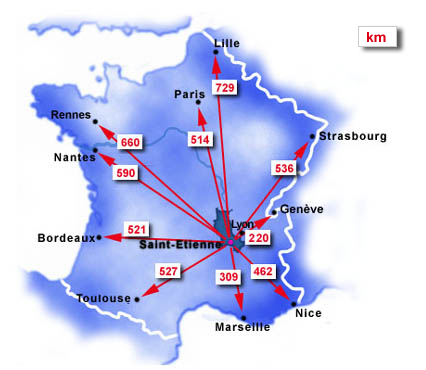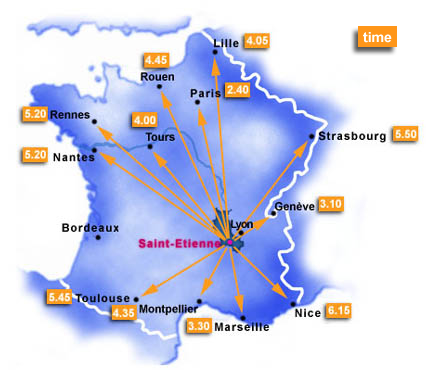
|
|
|
Venue
Location
Summer school will be held at Saint-Étienne, France and locally organized by the Mines Saint-Étienne, in particular, the Henri Fayol Institute.
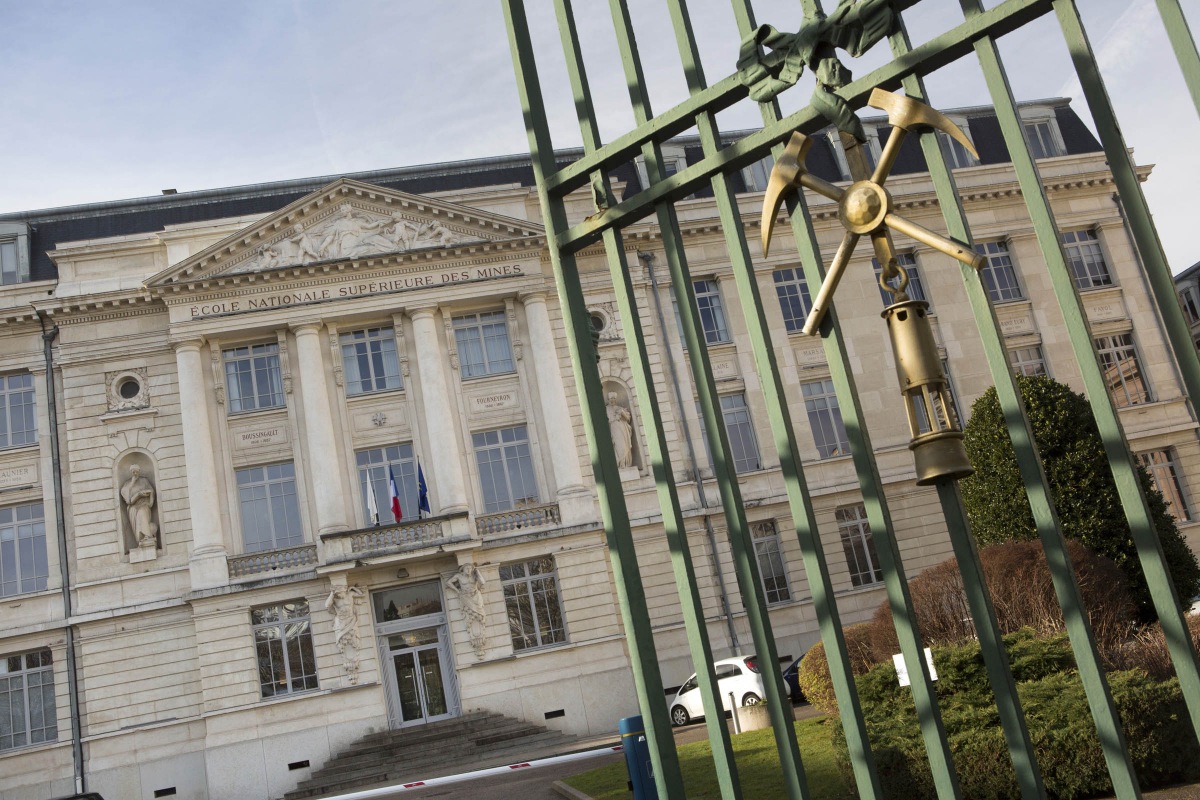 École des mines de Saint-Étienne established in 1816, and part of the French « Grandes Ecoles » system the School has held onto its core values: education, research, and dedication to economic development. Throughout its history, École des Mines de Saint-Etienne has been delivering academic programs and research relevant to the requirements of today’s and tomorrow’s business. In two centuries, the School has been transformed from an elite vocational school to a fully integrated graduate research college. The graduates from École des Mines de Saint-Etienne have been at the forefront of technological progress in the whole industry, in France and abroad. They have been instrumental in the development of innovative production and management methods, and in the introduction of new technologies, across the successive steps of the industrial advances. Mines Saint-Étienne has opened its horizons to international partnerships with 35 countries in Europe, Asia, North and South America. Today, Mines Saint-Étienne has more than 80 academic partners worldwide, 19 double-diploma agreements as part of its Executive Engineering degree program, and research partnerships with the world’s top universities. The 300 scientific staff is organized in 5 Research centers, with 420 publications per year and an operation budget of € 48 M.
École des mines de Saint-Étienne established in 1816, and part of the French « Grandes Ecoles » system the School has held onto its core values: education, research, and dedication to economic development. Throughout its history, École des Mines de Saint-Etienne has been delivering academic programs and research relevant to the requirements of today’s and tomorrow’s business. In two centuries, the School has been transformed from an elite vocational school to a fully integrated graduate research college. The graduates from École des Mines de Saint-Etienne have been at the forefront of technological progress in the whole industry, in France and abroad. They have been instrumental in the development of innovative production and management methods, and in the introduction of new technologies, across the successive steps of the industrial advances. Mines Saint-Étienne has opened its horizons to international partnerships with 35 countries in Europe, Asia, North and South America. Today, Mines Saint-Étienne has more than 80 academic partners worldwide, 19 double-diploma agreements as part of its Executive Engineering degree program, and research partnerships with the world’s top universities. The 300 scientific staff is organized in 5 Research centers, with 420 publications per year and an operation budget of € 48 M.
Saint-Étienne
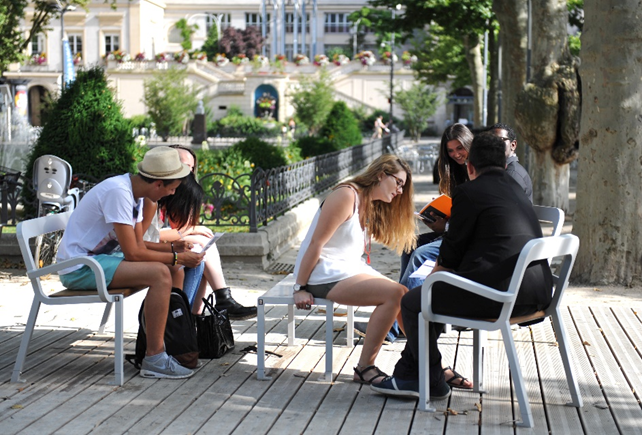 Long gone are the days of pits and coal mining. Ten years ago Saint-Etienne made an economic reconversion towards the new technologies (optics, biomedical, high-tech mechanics). Although the town has also undergone a cosmetic transformation(restoration, sandblast cleaning, rehabilitation and conversion) it has lost nothing of its original charm, thanks largely to the talents of Catalan architect Ricardo Bofill. Retaining undiminished spirit of daring innovation, the town seems on the verge of becoming the design capital of the world. As an exceptional cultural centre with prestigious museums and a plethora of cafés, theatres, clubs and restaurants, Saint-Etienne is a genuine metropolis.
Long gone are the days of pits and coal mining. Ten years ago Saint-Etienne made an economic reconversion towards the new technologies (optics, biomedical, high-tech mechanics). Although the town has also undergone a cosmetic transformation(restoration, sandblast cleaning, rehabilitation and conversion) it has lost nothing of its original charm, thanks largely to the talents of Catalan architect Ricardo Bofill. Retaining undiminished spirit of daring innovation, the town seems on the verge of becoming the design capital of the world. As an exceptional cultural centre with prestigious museums and a plethora of cafés, theatres, clubs and restaurants, Saint-Etienne is a genuine metropolis.
About Saint-Étienne, a cultural metropolis at the door of wonderful natural park. The era of coal mining and metal working firmly belongs to Saint-Étienne's past. The city has clearly evolved towards an economy based on new technologies. However, the city hasn't forgotten his remarkable industrial history. It is the only city in France selected as historical city for the 19th century. Beyond the Art and Industry National Museum with its unique collection of elaborate weaponry, unusual bicycles and braided ribbons, a complete industrial heritage is there to be visited.
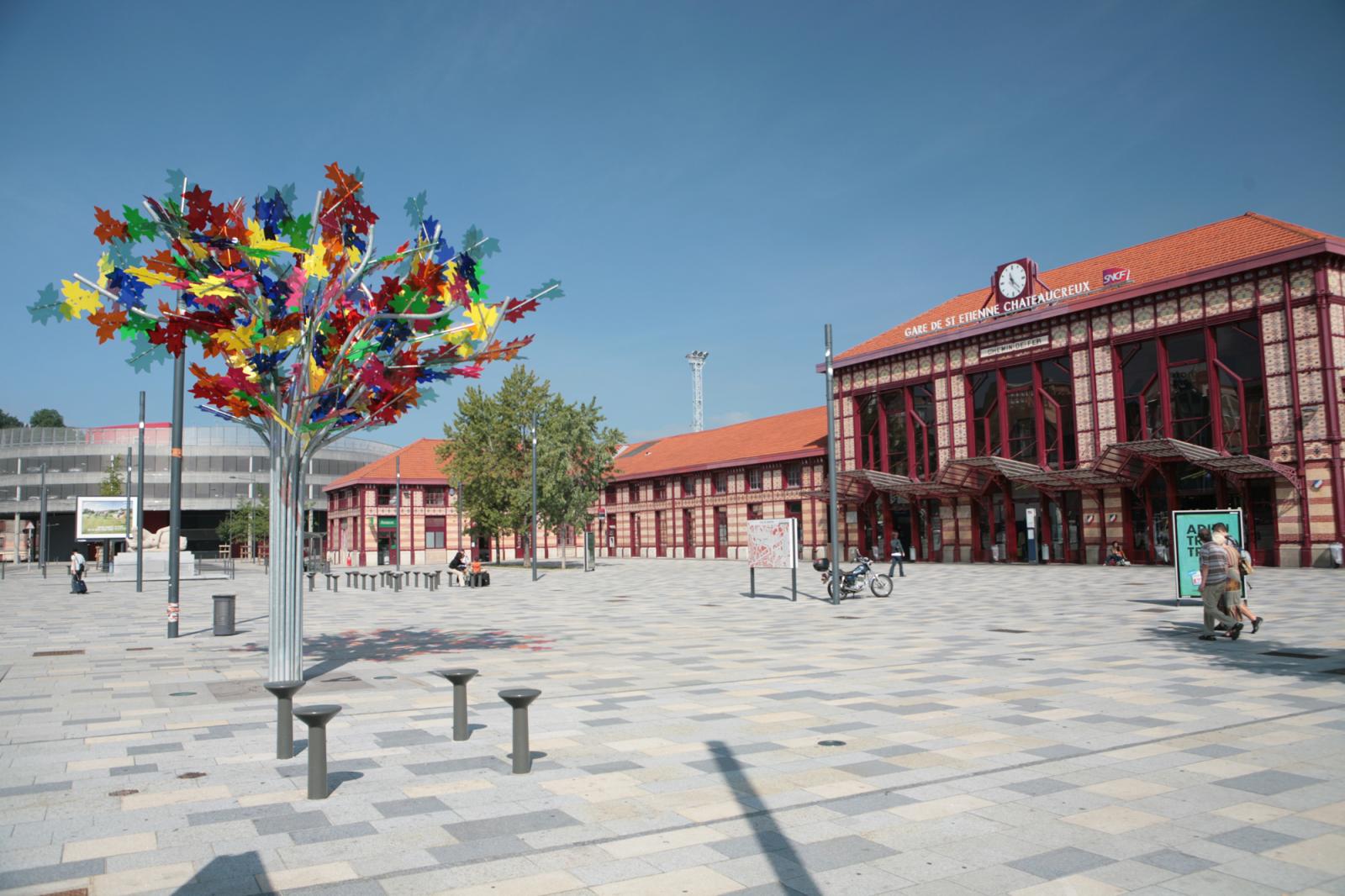
Saint-Étienne does not only have a rich industrial past but an exciting cultural present. Retaining undiminished spirit of daring innovation, the town seems on the verge of becoming the design capital of the world. The design heritage was the impetus behind the creation, in 1998, of the biennial international festival of design, which was an immediate success (150 000 visitors in 2002). With an internationally renowned Modern Art Gallery, Saint-Étienne offers an exceptional cultural center completed with a plethora of cafés, theatres, clubs and restaurants.
Situated at only 60 km from Lyon, Saint-Étienne is at the crossroads of the major French motorways making easily accessible cities like Geneva, Marseilles, Paris and region like the Alps, Drôme and Provence. The region of Saint-Étienne has much to offer. With a town center situated a stone's throw from the Pilat a regional Nature Park, the Forez mountains and the gorges of the River Loire, Saint-Étienne will give you a direct access to wonderful landscape with medieval villages and old stone castles scattered around. In the middle of the regional park, Saint-Victor water sport center will give you all the opportunities of sailing, water-skiing or canoeing.
A town buzzing with culture
SAINT-ETIENNE DOES NOT ONLY HAVE A RICH INDUSTRIAL PAST but an exciting cultural present. Better still it has managed to combine the two in a number of daring, ingenious and aesthetically challenging ways. A magnificent example of this is the Museum of Art and Industry with its unique collection of elaborate weaponry, unusual bicycles and braided ribbons.
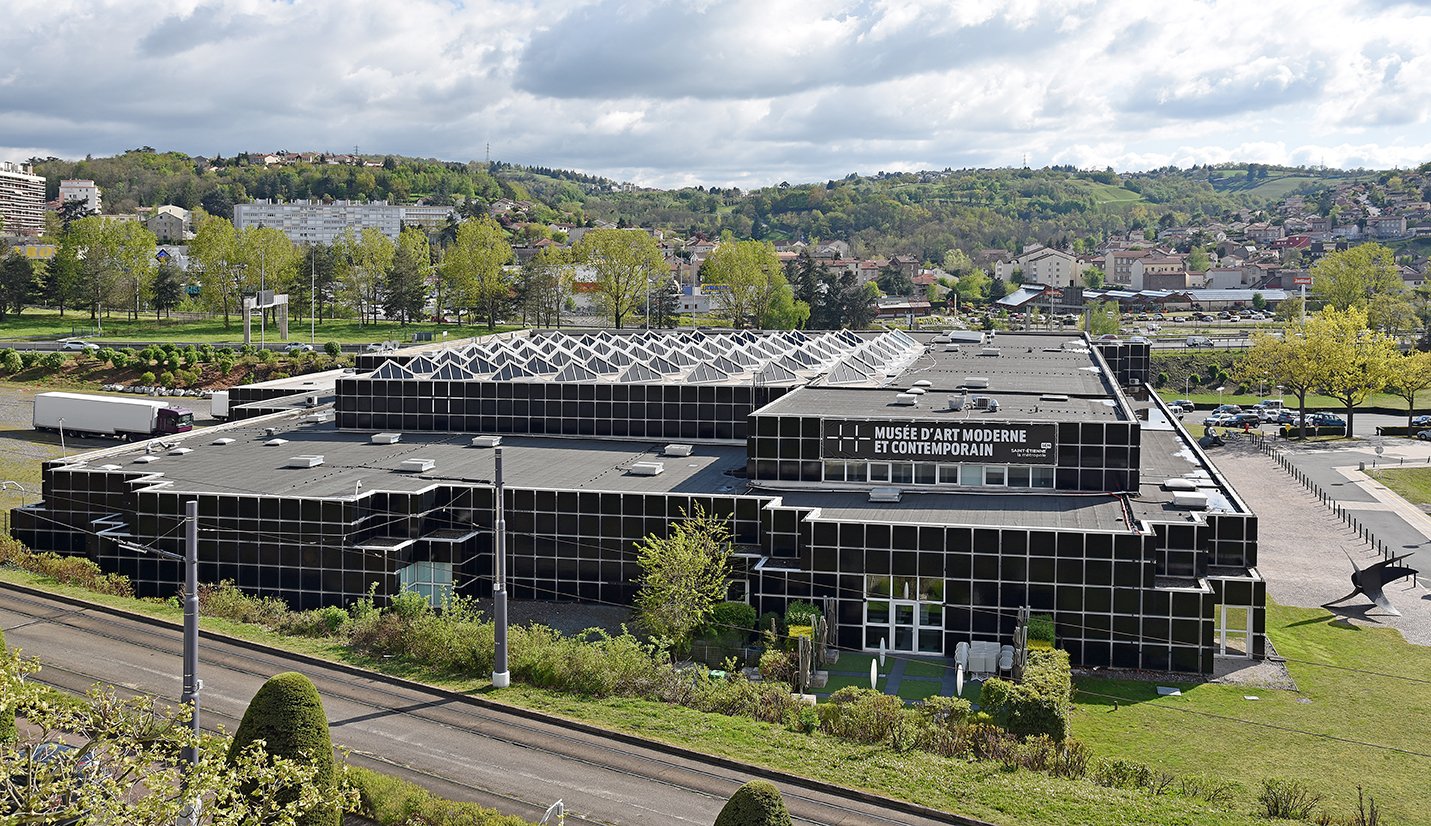 In 1987 the town opened its now internationally renowned Modernv Art Gallery (80000 visitors per year), which houses a collection of contemporary art, second only to the Georges Pompidou centre in Paris. With paintings, sculptures and visual installations, the museum is home to over 10000 works of art (Dubuffet, Soulages, Viallat, Klein, Warhol, Buren, etc.), which are constantly added to, thanks to the active acquisitions policy of the museum's directors. In addition to this ever-increasing collection is a unique 600-piece exhibition of French industrial design (Eames, Le Corbusier, Prouvé, Perriand and many others).
In 1987 the town opened its now internationally renowned Modernv Art Gallery (80000 visitors per year), which houses a collection of contemporary art, second only to the Georges Pompidou centre in Paris. With paintings, sculptures and visual installations, the museum is home to over 10000 works of art (Dubuffet, Soulages, Viallat, Klein, Warhol, Buren, etc.), which are constantly added to, thanks to the active acquisitions policy of the museum's directors. In addition to this ever-increasing collection is a unique 600-piece exhibition of French industrial design (Eames, Le Corbusier, Prouvé, Perriand and many others).
SAINT-ETIENNE REGULARLY HOSTS a wide variety of cultural events and in 2000 was awarded the title of "Town of Art and History". For three days every year in October, the squares and market squares of the town centre are covered with marquees which house one of the country's largest book festivals, welcoming over 120000 visitors and 500 authors. Another not-to-be-missed event is the "Art dans la Ville", a week in early June dedicated to local artists during which all visual arts are exhibited in original and quirky locations.
In fact, Saint-Etie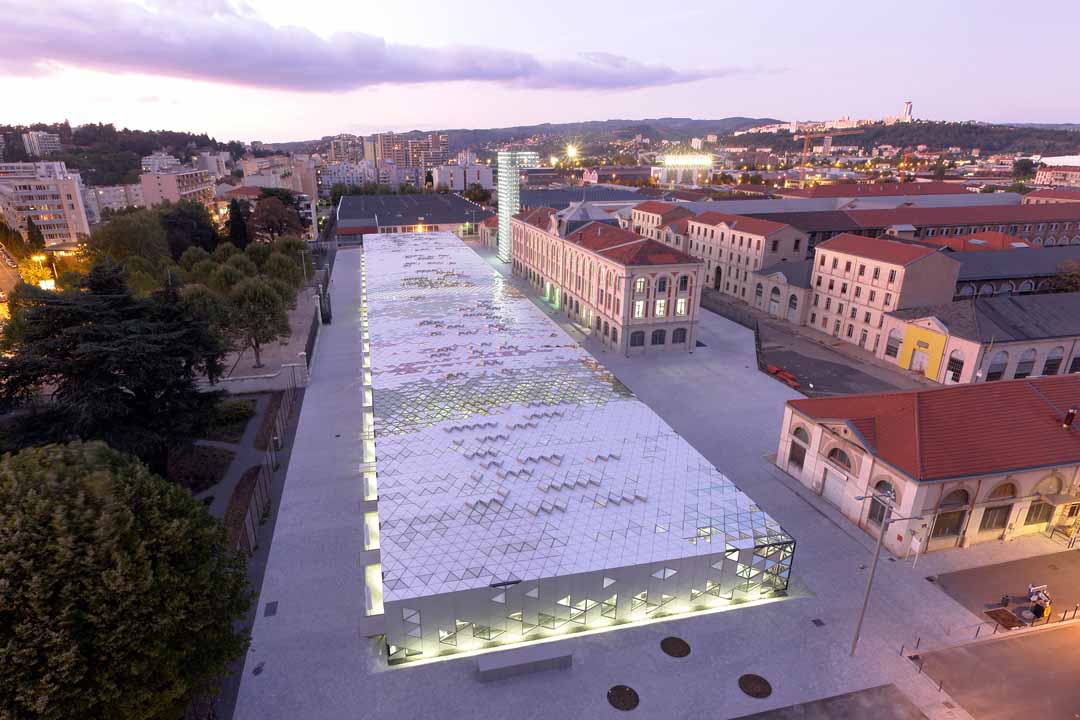 nne is home to French industrial design and bas been since its potential was recognised at the beginning of the 19th century. It is not by accident that Le Corbusier chose the Saint-Etienne region to construct the most complete example of his architectural genius. At Firminy (approximately 15 kilometres outside the town) stands a residence, a cultural centre, a sports stadium and a church all designed by this talented town planner.
nne is home to French industrial design and bas been since its potential was recognised at the beginning of the 19th century. It is not by accident that Le Corbusier chose the Saint-Etienne region to construct the most complete example of his architectural genius. At Firminy (approximately 15 kilometres outside the town) stands a residence, a cultural centre, a sports stadium and a church all designed by this talented town planner.
This design heritage was the impetus behind the creation, in 1998, of the biennial international festival of design, which was an immediate success (150000 visitors in 2002). For ten days every other year, the town's exhibition park is filled with design objects from all over the globe (from the words of fashion, consumer goods and urban innovation) giving the visiting public a remarkable overview of the diversity of creation in the sector.
The success of the festival has prompted the town to create a permanent exhibition hall and creativity centre, the International Centre for Design (CID), now located in the centre of town on the derelict site of a now defunct arms manufacture.
The CID is not "just another design center" but a highly innovative concept bringing together 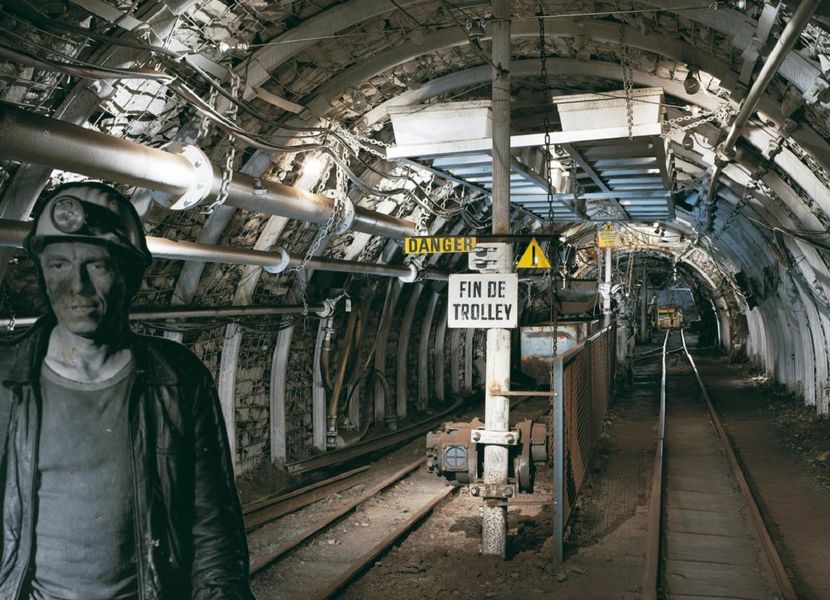 science, technology and industry. Casting a wide net over artistic creation, innovation and technological transfer, education and forecasting of future product development, the centre is a genuine ideas laboratory, promoting a constant interaction between culture, research and economics. One particular project is a program of economic development the aim of which is to raise the profile of design in business and to increase interaction between local, national and international players. One thing is certain, design is one of the major influences behind modernity, driving innovation and defining tomorrow's lifestyle choices.
science, technology and industry. Casting a wide net over artistic creation, innovation and technological transfer, education and forecasting of future product development, the centre is a genuine ideas laboratory, promoting a constant interaction between culture, research and economics. One particular project is a program of economic development the aim of which is to raise the profile of design in business and to increase interaction between local, national and international players. One thing is certain, design is one of the major influences behind modernity, driving innovation and defining tomorrow's lifestyle choices.
THE MUSEUM OF COAL MINING. Closed down as a working mine in 1973 the Couriot pit was for many years one of the region's largest coal seams (yielding up to 3000 tonnes of coal a day in 1950). In 1991 this historic site reopened its doors to the general public as a museum (locker and maintenance rooms, access to the subterranean passage via the mining shafts) guaranteeing each of its visitors a real step back in time (free entrance for ENSM.SE students).
Venue
The Summer School will be held at the NOVOTEL Saint-Étienne Centre Gare
5 COURS ANTOINE GUICHARD
42000 SAINT-ÉTIENNE
FRANCE
The accommodation will be provided at the Maison des Éleves
20 BD ALEXANDRE DE FRAISSINETTE
42100 SAINT-ÉTIENNE
Local Bus in Saint-Étienne
From Chateaucreux train station / NOVOTEL Saint-Étienne Centre Gare TO Maison des Éleves
Take Bus M4 at CHATEAUCREUX ST ETIENNE bus stop in front of the train station, down at LA REJAILLERE ST ETIENNE bus stop (15 stops ~25 min).
From Maison des Éleves to Chteaucreux train station / NOVOTEL Saint-Étienne Centre Gare
Take Bus M4 at 20, BOULEVARD ALEXANDRE DE FRAISSINETTE ST ETIENNE bus stop, down at CHATEAUCREUX ST ETIENNE bus stop in front of the train station (15 stops ~25 min).
Further information about bus : www.reseau-stas.fr
Arrive at Saint-Étienne
BY CAR
Road access
Motorway A72 Clermont-Ferrand / Saint-Etienne
Motorway A47 Lyon / Saint-Etienne
Route 82 Roanne / Saint-Etienne
Route 88 Firminy - Le Puy / Saint-Etienne
BY TRAIN
Direct links with Paris, Lyon, Marseille by T.G.V. (high speed rail)
Direct links with Paris-CDG Airport by T.G.V.
French railways (SNCF)
 Information schedule and booking
Information schedule and booking
![]()
Phone: +33 (0) 892 35 35 35
Information centre: +33 (0) 891 67 68 69
Saint-Etienne: "Chateaucreux" railway station![]()
BY PLANE
Lyon Saint Exupery Airport
Information: +33 (0)826 800 826
Airport transfer
Take a tram (1 every 15 min) to Lyon Part-Dieu railway station, and then take a train to Saint-Étienne (1 per hour).
Another alternative is to take the PROXAIR shuttle from the Airport to Saint-Étienne. For further information and booking please visit the PROXAIR website, or you may call at: +33 4 77 49 52 53.
